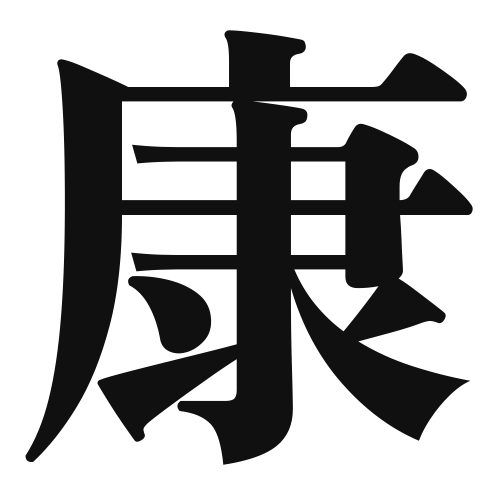1. Overview of Meaning
The kanji “康” (kō) generally means “health” or “peace.” It conveys a sense of well-being and tranquility, often associated with a healthy state of being.
2. Formation and Radical
Formation of the Kanji: The kanji “康” is a phonetic-ideographic character (形声文字). It combines the meaning of health and peace with phonetic elements to convey its sound.
Radical: The radical for “康” is “氵” (water), which is often associated with life and vitality, further emphasizing the concept of health.
3. Examples of Usage
Common Words and Phrases: Some frequently used words that include “康” are “健康” (kenkō – health) and “安康” (ankō – peace and health).
Example Sentences in Daily Conversation:
- 「彼はとても健康です。」(Kare wa totemo kenkō desu.) – “He is very healthy.”
- 「安康を祈ります。」(Ankō o inorimasu.) – “I wish you peace and health.”
4. Synonyms and Antonyms
Similar Kanji: A similar kanji is “健” (ken), which also means health but emphasizes strength and fitness. While “康” focuses on a peaceful state of health, “健” implies a more vigorous and robust health.
Opposite Kanji: The kanji “病” (byō) means “illness” or “disease,” representing the opposite of health and well-being.
5. Cultural and Historical Background
Relation to Japanese Culture: The concept of “康” is deeply rooted in Japanese culture, where health and peace are highly valued. It is often used in greetings and well-wishing.
Proverbs and Idioms: A common saying is “健康第一” (kenkō daiichi), which means “Health is the most important,” highlighting the cultural emphasis on well-being.
